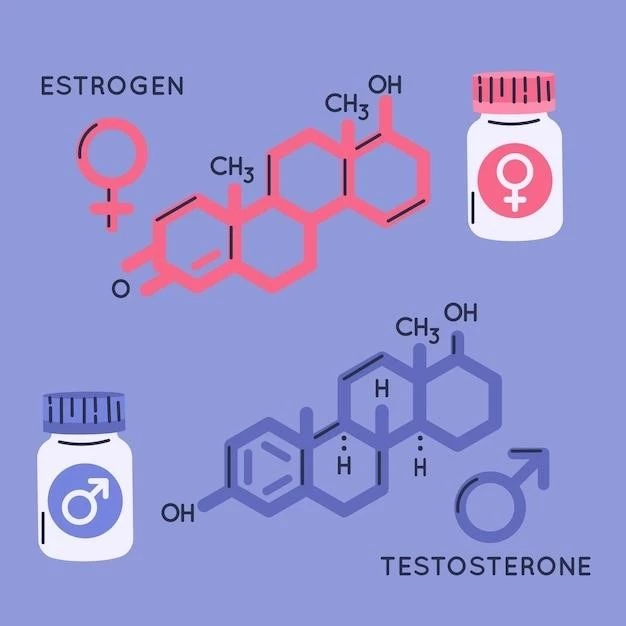Introduction to Glyceraldehyde-3-phosphate dehydrogenase deficiency
Glyceraldehyde-3-phosphate dehydrogenase deficiency is a rare metabolic disorder caused by enzyme deficiency․ It results from genetic mutations affecting carbohydrate metabolism․ The disease manifests with progressive symptoms and requires accurate diagnosis for appropriate medical management․ Various treatment options, prognosis factors, research studies, and supportive care are essential for individuals affected by this condition․ Understanding the inheritance pattern is crucial for comprehensive care․
Definition and overview of G3PDH deficiency
Glyceraldehyde-3-phosphate dehydrogenase (G3PDH) deficiency is a rare disease characterized by an enzyme deficiency impacting carbohydrate metabolism․ This metabolic disorder arises from genetic mutations affecting the G3PDH enzyme’s function, leading to a spectrum of progressive symptoms․ Diagnosis involves specialized tests to confirm the deficiency․ Treatment options focus on medical management and supportive care to address symptoms and improve quality of life․ Prognosis varies based on individual factors, research studies provide insights into the condition, and supportive resources play a crucial role in managing this inherited disorder․
Understanding Glyceraldehyde-3-phosphate dehydrogenase (G3PDH)
G3PDH crucial in carbohydrate metabolism․ Deficiency leads to metabolic disturbances and progressive symptoms․
Role of G3PDH in carbohydrate metabolism
Glyceraldehyde-3-phosphate dehydrogenase (G3PDH) plays a vital role in converting glyceraldehyde-3-phosphate to 1,3-bisphosphoglycerate during glycolysis․ This enzymatic reaction is essential for energy production in cells․ G3PDH deficiency disrupts this process, impacting the body’s ability to efficiently metabolize carbohydrates for energy production․ As a result, individuals with G3PDH deficiency experience metabolic imbalances that contribute to the onset of various symptoms associated with the disorder․
Enzyme Deficiency⁚ Causes and Mechanisms
G3PDH deficiency caused by genetic mutations affecting the enzyme’s function in carbohydrate metabolism․
Genetic mutation leading to G3PDH deficiency
The development of Glyceraldehyde-3-phosphate dehydrogenase (G3PDH) deficiency is primarily driven by genetic mutations that affect the gene encoding the G3PDH enzyme․ These mutations disrupt the enzyme’s structure or function, leading to decreased or absent G3PDH activity․ The inheritance pattern of these mutations determines the likelihood of passing the deficiency onto offspring․ Understanding the specific genetic alterations underlying G3PDH deficiency is crucial for accurate diagnosis and tailored treatment approaches․

Clinical Presentation of G3PDH Deficiency
Manifests with diverse progressive symptoms indicative of disrupted carbohydrate metabolism․
Progressive symptoms associated with the metabolic disorder
The metabolic disorder presents with an array of progressive symptoms such as muscle weakness, fatigue, neurological manifestations, and cardiopulmonary complications․ Individuals may experience developmental delays, cognitive impairment, and sensory disturbances․ As the deficiency affects various tissues and organs, symptoms may worsen over time, leading to significant challenges in daily functioning and quality of life․ Monitoring and managing these progressive symptoms are essential components of the comprehensive care for individuals with Glyceraldehyde-3-phosphate dehydrogenase deficiency․
Diagnosis of Glyceraldehyde-3-phosphate dehydrogenase Deficiency
Precise diagnosis involves specialized tests to identify enzyme deficiency and confirm the metabolic disorder․
Methods and tests used for accurate diagnosis
Accurate diagnosis of Glyceraldehyde-3-phosphate dehydrogenase deficiency involves specialized laboratory tests to measure enzyme activity, genetic analysis to identify mutations in the G3PDH gene, and clinical assessments to evaluate symptoms and metabolic markers․ Enzyme assays, molecular testing, and imaging studies may be utilized to confirm the presence of G3PDH deficiency․ A multidisciplinary approach combining biochemical analyses and genetic evaluations is essential for a precise and comprehensive diagnosis, enabling tailored treatment strategies for individuals affected by this rare metabolic disorder․
Treatment Options for G3PDH Deficiency
Management involves medical interventions and supportive care to address symptoms and improve quality of life in affected individuals․
Medical management and supportive care
Medical management of Glyceraldehyde-3-phosphate dehydrogenase deficiency focuses on symptom relief and addressing metabolic imbalances․ Supportive care involves a multidisciplinary team providing rehabilitative services, nutritional support, and monitoring for complications․ Physical and occupational therapies play a crucial role in improving muscle function and mobility․ Psychological support and genetic counseling are important components of comprehensive care․ Regular follow-up evaluations help optimize treatment strategies and enhance the overall well-being of individuals living with this rare metabolic disorder․
Prognosis and Outlook for Individuals with G3PDH Deficiency
Prognosis in G3PDH deficiency varies based on severity of symptoms, early intervention, and individual response to treatment․
Factors influencing prognosis in patients with G3PDH deficiency
Prognosis in Glyceraldehyde-3-phosphate dehydrogenase deficiency is influenced by various factors, including the age of onset, severity of symptoms, response to treatment, presence of complications, and adherence to medical management․ Early diagnosis and intervention play a crucial role in improving outcomes and slowing disease progression․ The individualized approach to care, continuous monitoring, and access to supportive resources are pivotal in enhancing the prognosis and quality of life for individuals affected by this metabolic disorder․ Research studies continue to explore novel therapies and interventions that may further improve the outlook for patients with G3PDH deficiency․
Research Studies and Case Reports on G3PDH Deficiency
Ongoing research investigates new therapies and insights into G3PDH deficiency through case reports and medical studies․
Overview of current research trends and findings
Current research on Glyceraldehyde-3-phosphate dehydrogenase deficiency focuses on elucidating novel therapeutic targets, understanding the molecular mechanisms underlying the disorder, and assessing the long-term outcomes of different treatment modalities․ Recent studies explore gene editing technologies, enzyme replacement therapies, and personalized medicine approaches tailored to individual genetic profiles․ Through collaborative efforts and advances in biomedical research, scientists aim to improve diagnostics, enhance treatment efficacy, and ultimately provide better care for individuals with G3PDH deficiency․
Supportive Care and Resources for Individuals with G3PDH Deficiency
Enabling access to supportive networks and resources is crucial for comprehensive management of G3PDH deficiency․
Importance of support networks and available resources
Support networks and resources play a vital role in providing emotional support, practical assistance, and educational guidance to individuals and families affected by Glyceraldehyde-3-phosphate dehydrogenase deficiency․ These networks offer a platform for sharing experiences, accessing specialized care services, and staying informed about the latest advancements in research and treatment options․ Support groups, advocacy organizations, and online forums create a sense of community, reduce isolation, and empower individuals to navigate the challenges associated with the condition․ Collaborating with healthcare professionals and engaging with support networks can significantly improve the overall well-being and quality of life for those impacted by G3PDH deficiency․
Inheritance Pattern of Glyceraldehyde-3-phosphate dehydrogenase Deficiency
The genetic inheritance pattern of G3PDH deficiency determines the risk of passing the condition to offspring․
Understanding the genetic inheritance pattern of G3PDH deficiency
G3PDH deficiency follows an autosomal recessive inheritance pattern, requiring two copies of the mutated gene for the condition to manifest․ Carriers with one mutated gene are typically asymptomatic but can pass the disorder to their offspring․ Genetic counseling is essential for individuals with a family history of the disease to understand their risk of transmitting the condition and make informed reproductive decisions․ By comprehensively grasping the genetic inheritance pattern of G3PDH deficiency, healthcare providers can offer personalized guidance and support to families affected by this rare metabolic disorder․
